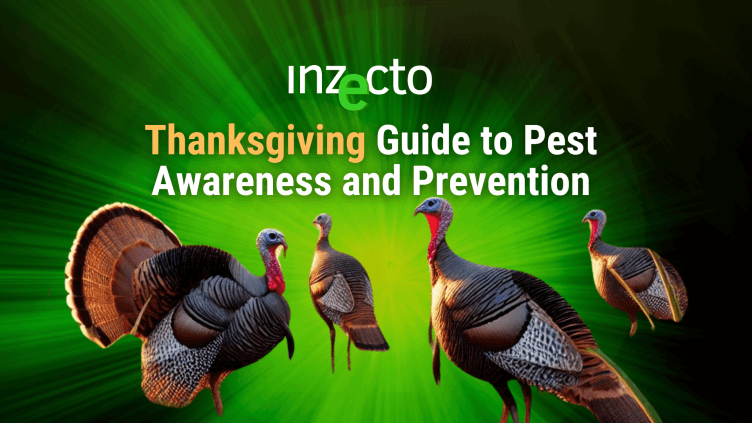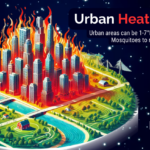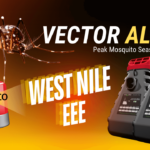2024 has been an amazing year here at INZECTO , and we’re thankful for the growing adoption of our INZECTO Mosquito Trap across the United States and internationally. As we prepare for Thanksgiving and quality time with friends and family, let’s explore some surprising connections between this holiday season and pest management—specifically, how mosquitoes impact turkeys and what you can do to prevent termite issues during festive gatherings.
The Hidden Health Risks of Turkeys: Lessons from Mosquito-Borne Diseases
Thanksgiving is a time for turkey dinners, family celebrations, and gratitude. But did you know these iconic birds can teach us a lot about disease transmission? While these birds are central to our celebrations, they also carry hidden health risks.
The Mystery of Florida Turkeys: Dr. Koehler’s Discovery
Years ago, Emeritus Professor Dr. Phil Koehler working as an extension specialist in livestock and poultry parasites at the University of Florida , noticed a surprising absence: large commercial turkey flocks were nearly nonexistent in Florida. This was puzzling because the poultry science department had a small flock that was doing well, and wild turkeys thrived throughout the state.
Curious, Dr. Koehler asked UF’s poultry scientists why more farmers weren’t raising turkeys. Their answer pointed to a significant challenge: turkey malaria. This mosquito-borne disease, carried by Culex mosquitoes, impacts the health of both wild and farmed turkeys, often limiting egg production and offspring survival.
Why Mosquitoes Make Turkey Farming Challenging in Florida
Florida’s wild turkey population is naturally lower due to the persistent presence of mosquitoes, which play a significant role in spreading diseases to turkeys. Mosquito-borne illnesses, particularly turkey malaria, have impacted the viability of large commercial turkey farming in the region. Unlike many other bird species, turkeys are highly vulnerable to mosquito-borne parasites that thrive in Florida’s warm, humid environment.
Although wild turkeys still manage to survive across the state, the risk of disease transmission means that large-scale turkey farming has remained limited. This unique health challenge faced by turkeys in Florida offers valuable insights into disease transmission, as scientists continue to study how mosquitoes impact not only turkeys but also broader ecosystems and public health efforts.
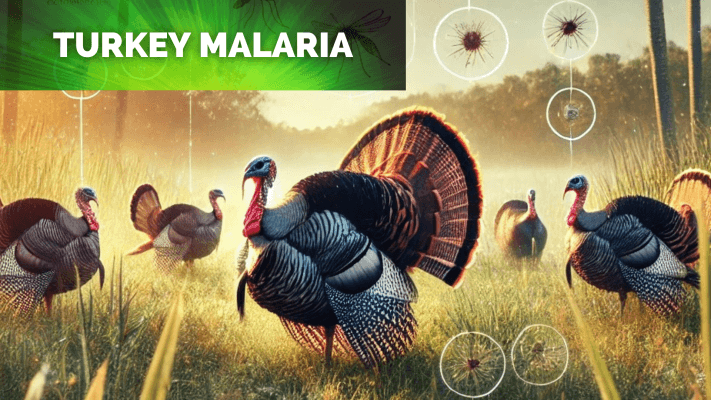
While turkeys are largely covered with feathers that protect them from mosquito bites, they have scaly, featherless feet—one of the few areas mosquitoes can access to feed.
Turkey Malaria: A Unique Avian Disease
- - What It Is: Turkey malaria is caused by a parasite known as Plasmodium, similar to the one that causes malaria in humans but specific to birds. This disease affects various bird species, including wild turkeys and domesticated poultry.
- - How It Spreads: Unlike human malaria, which is spread by Anopheles mosquitoes, turkey malaria is carried by Culex mosquitoes. In Florida, where these mosquitoes are abundant, turkeys are especially vulnerable.
- - Impact on Turkeys: Research shows that infected turkeys produce fewer eggs and are less successful at rearing offspring, which makes commercial turkey farming less viable in Florida than in other states. Malaria-infected turkeys have lower productivity, making it challenging to sustain large flocks.
How Mosquitoes Target Turkeys
While turkeys are largely covered with feathers that protect them from mosquito bites, they have scaly, featherless feet—one of the few areas mosquitoes can access to feed. Culex mosquitoes take advantage of this vulnerability, biting the birds in the spaces between their scales and spreading diseases like turkey malaria.
Beyond Turkey Malaria: Other Mosquito-Transmitted Risks
- - West Nile Virus (WNV): WNV affects a range of bird species, including wild turkeys. It’s known to cause neurological issues and reduced movement in infected birds, sometimes leading to death.
- - Eastern Equine Encephalitis (EEE): EEE, another mosquito-borne virus, affects humans and birds alike. While less common, it’s often lethal in turkeys, causing severe symptoms and high mortality.
How Turkey Malaria Advanced Our Understanding of Disease
- - Uncovering Hidden Stages of Infection: Scientists long suspected that malaria parasites had a “hiding place” in the body before emerging in the blood. The study of turkey malaria provided answers: researchers found the parasite hiding in the liver and spleen of infected turkeys. This discovery was a breakthrough, highlighting a critical stage in the malaria lifecycle.
- - Informing Malaria Vaccine Development: Insights gained from turkey malaria research have become foundational for developing malaria vaccines, as understanding this hidden stage helps target the parasite more effectively.
A Thanksgiving Lesson in Disease Transmission
As we gather around the table this Thanksgiving, enjoying our turkey dinners, it’s worth reflecting on the unexpected lessons turkeys have taught us about health and disease. Turkey malaria, along with other mosquito-borne threats like West Nile Virus and EEE, offers valuable insights into disease transmission and helps inform broader public health efforts.
Florida’s environment provides a natural laboratory for understanding how mosquitoes spread diseases, not only affecting birds but contributing to our knowledge of disease prevention and control.
This Thanksgiving, let’s remember that turkeys aren’t just a centerpiece on our holiday tables—they’re also a crucial part of scientific discovery and a reminder of the intricate connections between wildlife and human health.

Can Your Thanksgiving Fried Turkey Attract Termites?
Can Your Thanksgiving Fried Turkey Attract Termites? Here’s What You Should Know
Let’s look at how to keep these unwelcome guests at bay.
1. Food Scraps and Leftovers
Indirect Attraction: If food scraps accumulate in soil near wooden structures (such as decks or fences), they can increase termite activity by creating moist soil, which is highly appealing to termites.
WATCH 👁🗨Termites devour a Hamburger, Courtesy of PestWorld and Dr. Michael Bentley
2. Turkey Frying Oil and Moisture
One big attractant for termites is moisture. Termites are drawn to damp environments, so it’s important to be mindful of how you discard used oil or clean up spills.
Oil and Water Build-Up: When oil and water spills are left near wood piles, porches, or other outdoor wooden areas, they can create the perfect conditions for termites over time.
Foundation Concerns: Moisture buildup near the foundation of your home—especially when combined with food scraps or other organic material—can make wood softer and more inviting for termites, making it easier for them to start tunneling.
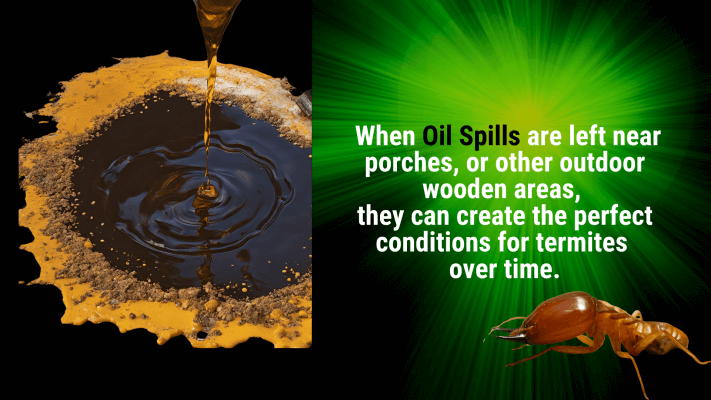
One big attractant for termites is moisture. Termites are drawn to damp environments, so it’s important to be mindful of how you
3. Outdoor Feasting Areas and Wooden Structures
Surface Moisture and Decay: Though termites won’t eat food residues themselves, moisture and organic material buildup on or near wood can degrade the wood. This creates an entry point for termites to explore and potentially invade.
4. Composting and Organic Waste Disposal
Composting Tips: To avoid termite attraction, keep compost piles well away from any wooden structures, turn the pile frequently to manage moisture, and avoid overwatering. These simple steps can make a significant difference in keeping termites away.
- Clean Up Scraps: Make sure food waste is promptly removed and disposed of properly, especially around outdoor areas.
- Manage Moisture: Clean up oil and water spills quickly, and avoid letting them accumulate around wood.
- Store Firewood Wisely: Keep firewood off the ground and away from the home to minimize risk.
- Compost Correctly: Place compost piles far from your home’s foundation and manage moisture carefully.
- Proper cleanup, moisture control, and outdoor waste management are the best ways to keep all pests, including termites, at bay. With a little preparation, you can enjoy a termite-free Thanksgiving and protect your home from any unexpected visitors.
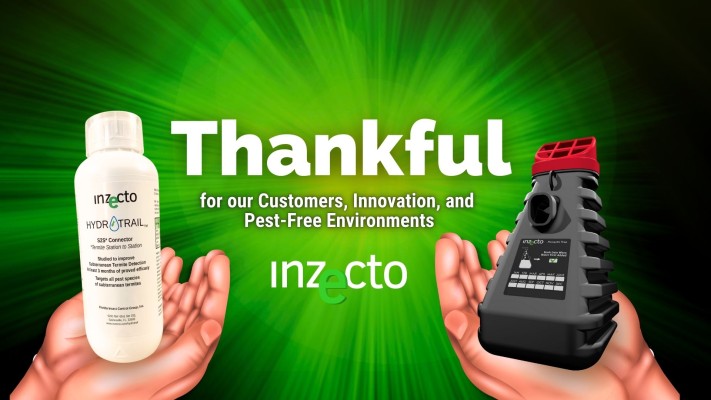
In 2025, let’s keep the momentum going! Discover more about the
In 2025, let’s keep the momentum going!
Together, we can make every season a little healthier and safer. Happy Thanksgiving and here’s to continued success in 2025!

